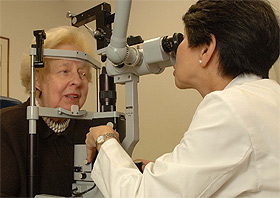You may be able to stop a serious liver disease called nonalcoholic steatohepatitis, but better known as NASH, when you take the diabetes drug pioglitazone. NASH is a common complication of type 2 diabetes. But a three year long randomized, double-blind, placebo-controlled trial concludes that pioglitazone, sold here as Actos as well as in a generic version, is a safe and effective treatment.
Kenneth Cusi, MD, is the lead author of the study, which the journal Annals of Internal Medicine published online ahead of print. Only the abstract of the study is free online. But a spokesperson for the University of Florida, where Dr. Cusi is a professor of medicine, sent me the full-text.

My Wife Catherine Died of Liver Failure
NASH usually has few or no symptoms, according to the National Institute of Diabetes and Digestive and Kidney Diseases. It is “usually a silent disease.”





